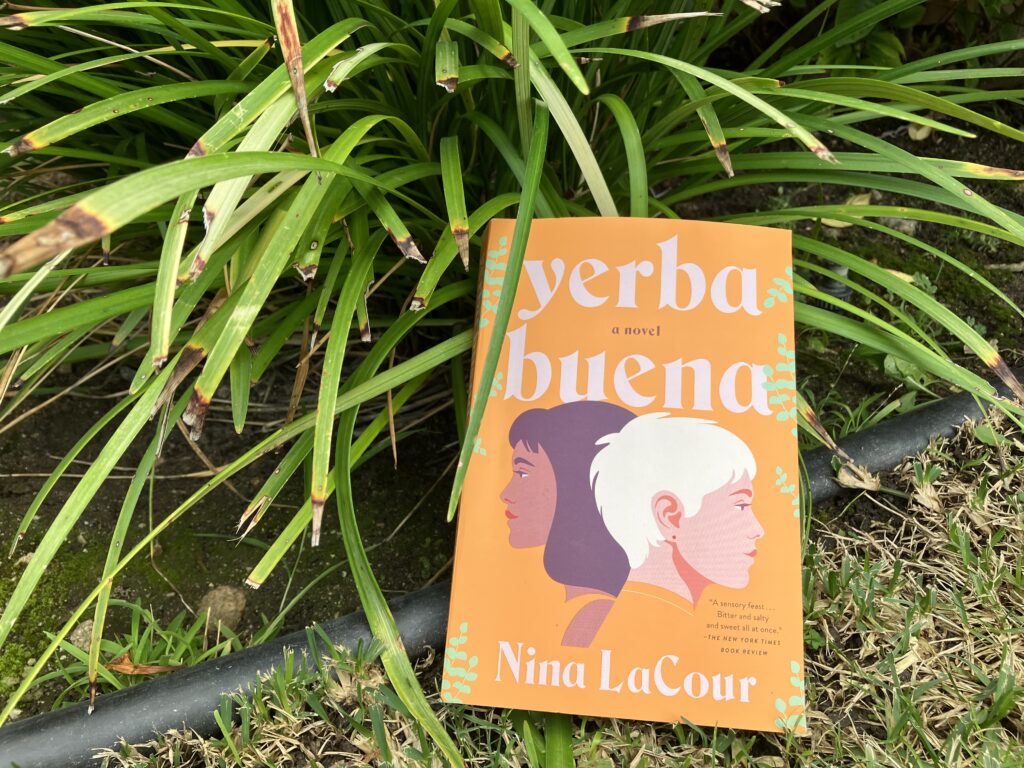While reading Nina LaCour’s Yerba Buena on a drowsy Los Angeles winter afternoon, I turned the pages in a rush. I wanted to experience what would happen to main characters Emilie and Sara: first as teenagers in their own separate tales of trauma, then as adults eventually finding and re-finding each other in this coming-of-age romance.
At the same time, the book’s sensory beauty made me want to notice the world around me, not just read about it. And so I kept getting up and lying down again. Squeezing a lemon into honey-vanilla tea and then reading about Emilie interviewing for a job as a floral arranger, as she remembered “her flora phrase…the woody smell of snipped stems, thorn pricks and sore fingers.” Slipping into gold yoga-mat flip flops and walking around the block in the sunshine, my eyes catching sight of enormous unripe grapefruits – then returning to Sara, a high-end bartender, as she “appeared again with the coupe glass, the chartreuse liquid up to the rim, the sprig of mint that hadn’t been part of the drink before.” I found excuses to view the world through the prism of sensation that LaCour illuminates in this novel, her first for adults after several successful ventures into YA.
Yerba Buena opens in tragedy, with 16-year-old Sara losing someone she loves and, making it worse, facing her family’s painful lack of support. From the river town of Guerneville in Northern California, set close along the redwoods, Sara lights out for L.A. with a stranger, no plan, and little money, realizing that she too is capable of betrayal.
Meanwhile, Emilie is a native Angeleno who finds herself stuck as a young adult. She’s several credits away from graduating college but can’t follow through. Emilie, fascinated by her Creole ancestry, falls into an ill-fated relationship that she knows is going nowhere, one that leaves her realizing “how much smaller she had made her own life” in the process.
Eventually Emilie and Sara find their passions, both vocational and romantic, but only after missteps and missing each other over and over. As late as the end of the book, Emilie acknowledges that “[s]urely, she knew enough to know better” than to immerse herself yet again in the possibility of disappointment. Surely we all do.
But this novel argues for courage, for seeking out possibilities over hiding. Even if you aren’t surrounded by California citrus, this book will inspire you to seek out the gorgeous, to consider how we transmute pain into beauty – in spite of or because of what we’ve gone through to get to this moment.

